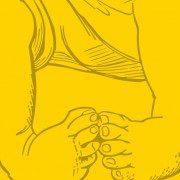How a $5 Cash Voucher Stopped Me in My Tracks
It was a Monday afternoon, and I was at the local supermarket buying groceries for the week. As the cashier scanned and bagged the greens and meat I had selected, I opened my purse to search for the cash vouchers I had been given.
The bill came to $43.75, so I pulled out $40 worth of vouchers and passed them to the cashier. It was when I was fishing in my purse for cash to pay the balance that I caught sight of a pair of eyes staring at my cash vouchers.
They belonged to a man behind me. He looked like a blue-collar worker, probably a foreigner. His blue polo shirt was faded, his jeans were worn out, and his slippers and feet were dusty. He eyed my vouchers longingly, one hand clutching two crumpled $2 notes, the other holding a carton of eggs.
He glanced up and caught my eye. His gaze conveyed a tinge of sadness, and no words were needed to convey its message: “It’s not fair.”
Up to then, I had been congratulating myself on having saved money with the vouchers, but suddenly, the satisfaction of using them disappeared. He was right—it really wasn’t fair. Here I was, able to pay for $40 worth of groceries without batting an eyelid, while this man was probably forking out a big portion of his hard-earned income to fill his stomach. Those eggs were probably his only source of protein for dinner; maybe they were his dinner. Yet I was the one given the vouchers—no one thought to give him any.
As I put the receipt away and gathered my bags, it suddenly struck me that I could pass him a voucher to pay for his eggs. Alas, they cost less than $4, while the vouchers required a minimum spend of $5. I moved on while the man handed the cashier his crumpled notes.
I walked out the store and stood for a while to arrange my shopping. I despaired that I had missed the chance to help the man, but still felt a desire to do something. Meanwhile, the man came out of the store and walked past, not giving me a second look.
I need to do this, I thought. So I quickened my pace and caught up with him. Smiling awkwardly, I handed him a $5 voucher, mumbling, “Here, this is for you.” He looked at me, surprised, then reached out to take the voucher. He smiled and replied softly, “Thank you.”
I gave him another awkward smile and walked away.
My interaction with the man ended there. I’ll probably not see him again. But for me, the incident didn’t end there. Halfway home, it suddenly dawned on me that I could have—I should have—given him more. A $10 or $20 voucher would have been good. Or whatever vouchers I had left. But I had given him only $5. I felt like the rich man who had given a tiny portion of his wealth rather than the widow who had given all of her two mites.
The incident troubled me, but perhaps in a good way. That one look from the man behind me in the supermarket shook me up more than any motivational speech could. Life is not fair; that was the truth. Here we were, both foreigners—I am a Malaysian living in Singapore—but our circumstances were worlds apart.
I’m not writing this to comment on the inequality and social justice that resulted in this difference, although there is a place and a need for such discussions.
I’m not writing this to highlight my generosity, because frankly, I did very little. In fact, I feel more guilt than satisfaction about the whole incident.
I’m writing this because I need to remind myself of these points:
- To whom much is given, much is expected.
There is much I have received, but I’ve given away so little.
- Always be aware of my surroundings.
Look out for the needs of others around me and seek opportunities to bless others.
- Be ready in season and out of season.
Eagerly expect to bless, whether in deed or prayer. Be ready to give my all, at all times.
- Give, give, and give.
I’m not talking just about money, but a self-sacrificial kind of love. We have received so much love, so it is only right to pay it forward. In doing so, we declare the glory of God, that others may also receive that same love and “have fellowship . . . with the Father, and with his Son, Jesus Christ” (1 John 1:3).
Will you do the same?
This article was originally published on the writer’s blog here. This version has been edited by YMI.










Sometimes the seed we sow we don’t often have the opportunity to see it grow. Can two mites grow? What might have been two mites for one person, may be as if it were thousands to the other. God’s seed does grow even though we don’t see it. In Hebrews 13:2 the Bible says do not forget to show hospitality to strangers lest we entertain Angels unaware. When we think of seeds we often only see the seed, but when it is planted it can grow to have hundreds of seeds that spread everywhere. The tiniest seed called the Mustard seed grows into a huge plant. Do not look at how small the mites where, but what the heart of your seed giving gave the person who needed this. One never knows what happens, but it may have been exactly what the man needed for someone to see his need.